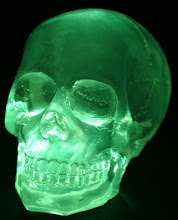I've come to the conclusion that my heritage is, well, mostly Quaker/Midland North/Methodist. (Not surprising, given that both my dad's father and my mother's parents are Methodists.)
But I am a Southern Methodist, mind you. Still a member of the United Methodist Church, in the future, but one from Southern California.
On this subject, a passage from The Cousins Wars on California's North/South division. Where it's at:
A brief digression is in order to note that the last two "border" states of 1860 were western: California and Oregon, both of which Lincoln carried by only hairbreadth pluralities, with a sizeable minority of voters opting for the southern Democratic nominee, John Breckinridge (28 percent in California, 34 percent in Oregon). On the eve of war, the western states and territories, like those in the Ohio Valley, were places where large southern and northern populations mingled.
In California, San Francisco and the north coast were Union-dominated, and along with other local units even forming a "California battalion" to serve in the 2nd Massachusetts Cavalry. In late 1860 and early 1861, however, some neutral observers had expected California to support the Confederacy or opt for the independent Pacific Confederacy so many local Democratic office-holders were talking about. Of the state's 380,000 people, almost 40 percent were from slave states, and only seven of fifty-three newspapers had supported Lincoln. Confederate flags were flown in San Jose, Visalia, Stockton, and a number of mining towns, and pro-southern sentiment was so strong in Los Angeles and San Bernardino that northern California infantry and cavalry units had to be moved into the area to guard against any Confederate force coming from Texas and New Mexico (Tucson, for example, sent a delegate to the Confederate Congress). Tennessee-born U.S. Senator William Gwin left California for the Confederacy in early 1861. Unionist sentiment grew after South Carolina fired on Fort Sumter, and Copperhead activity slackened after the Confederate invasion of New Mexico was turned back at Glorieta Pass in March 1862.
In California, San Francisco and the north coast were Union-dominated, and along with other local units even forming a "California battalion" to serve in the 2nd Massachusetts Cavalry. In late 1860 and early 1861, however, some neutral observers had expected California to support the Confederacy or opt for the independent Pacific Confederacy so many local Democratic office-holders were talking about. Of the state's 380,000 people, almost 40 percent were from slave states, and only seven of fifty-three newspapers had supported Lincoln. Confederate flags were flown in San Jose, Visalia, Stockton, and a number of mining towns, and pro-southern sentiment was so strong in Los Angeles and San Bernardino that northern California infantry and cavalry units had to be moved into the area to guard against any Confederate force coming from Texas and New Mexico (Tucson, for example, sent a delegate to the Confederate Congress). Tennessee-born U.S. Senator William Gwin left California for the Confederacy in early 1861. Unionist sentiment grew after South Carolina fired on Fort Sumter, and Copperhead activity slackened after the Confederate invasion of New Mexico was turned back at Glorieta Pass in March 1862.
Also, I should say that the final clincher is that the local Methodist church is much closer than the local Baptist church. Can't argue with that!
My grandfather on my dad's side is a preacher at his tiny and ancient white wooden steeplehouse Methodist Episcopal church in the old mining camp town of the Sierra Nevada that he lives in (in a giant wooden cabin, filled with roaring flames in the winter and hot coffee and freshly baked pies all the time -- we used to go there nearly every Thanksgiving; hopefully this year we'll go for Christmas). Once I asked him why he wasn't, say, a Unitarian -- he laughed, and said "Well, we have to believe in something!" (Methodists are Arminian, both liturgically and theologically moderate. They, surprisingly and commendably, do not recognize same-sex unions. They are ambivalent towards alcohol, which I like. I'm not sure how they feel about abortion; I wouldn't be surprised, however, if they were also ambivalent about that.)

No comments:
Post a Comment